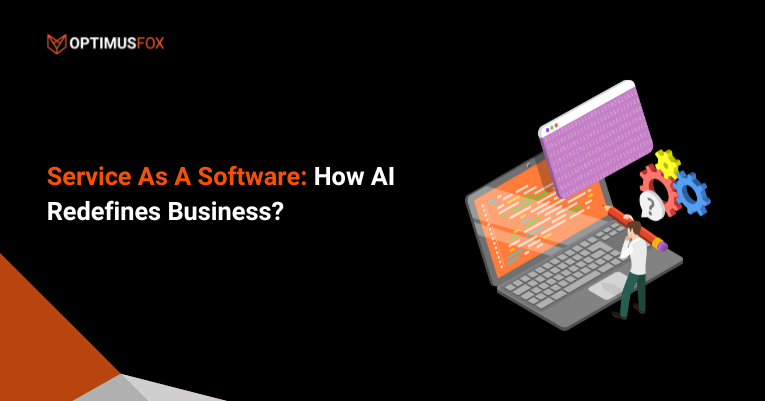Introduction
The Internet Computer, or ICP technology, has mixed perceptions online. Some people consider seeing only the fluctuations in its token price, while others are excited to know if it is a revolutionary technology to transform the internet. To clear up confusion, we will break down the concept of ICP into what is icp, how icp works, its features and how it redefines or powers blockchain. Before we start we need to clear up some things because the internet computer refers to three different things. First is a network, the internet computer is a decentralized cloud. Next is a token, ICP is a cryptocurrency and you can buy it on exchanges and trade it like any other token that has utility in the network. You can burn and stake it and you can earn rewards for it. The third one is the program, ICP stands for Internet Computer Protocol which is a program. It runs in the nodes that power the network. Moreover, the code is open source. Developers can find it online. The code is currently maintained by Dfinity foundation but other contributors are welcome to participate in maintaining the nodes. Let’s understand the Internet computers and why it was needed in detail:
Smart Contracts and Their Limitations
Traditional ecosystems like Ethereum use smart contracts. They are self-executing contracts that enable dApps to function. The major drawback was that they required intermediaries and wallets. They also charge transaction fees to users which introduce risks like censorship and centralized dependency.
The Need For ICP

ICP is a blockchain network that facilitates the development of Internet services. It uses a secure and decentralized protocol designed to surpass the limitations of traditional smart contracts. ICP protocol uses nodes to communicate over the Internet to create a cohesive, decentralized network called the Internet Computer. On top of the ICP network developers can create dApps called canisters. Canisters operate as a WebAssembly module that can be considered as an ICP solution to solve the limitations of traditional smart contracts.
Picture:
Do you know?
Internet Computer (ICP) after Bitcoin and Ethereum is the third great innovation in blockchain.

How ICP Works
In simple words, The Internet Computer Protocol (ICP) provides a decentralized environment for hosting and running web applications. It enables a new generation of internet service including a network of nodes, a decentralized consensus protocol, and a distinctive approach to application hosting. Here’s a breakdown of how ICP works:
1. Decentralized Network and Node Structure

The Internet Computer has nodes hosted in independent data centers worldwide. These nodes form a cohesive, decentralized network by communicating over the internet. ICP organizes these nodes into subnets. Each subnet manages multiple canisters(apps). Subnets can operate independently which allows the network to scale easily by adding new subnets as needed.
2. Canisters as Next-Gen Smart Contracts
Traditional smart contracts have limitations which canisters solve. These modules enable developers to create internet-scale applications with advanced functionality. Users interact with these canisters by sending messages, which can trigger actions such as transferring tokens, posting on social media, or interacting with other decentralized applications. This module eliminates the need for centralized servers and reduces intermediary reliance for more seamless user experiences.
3. Reverse Gas Model
The computation cost is covered by a canister itself in an ICP which is called a reverse gas model. This model allows users to interact with decentralized applications without paying transaction fees. As a result, it enhances accessibility and user experience.
4. Scalability and Consensus Protocol
The Internet Computer have a unique threshold cryptography consensus protocol. Unlike traditional proof-of-work (PoW) or proof-of-stake (PoS) models, each subnet maintains a public key, and nodes work together to validate messages. It ensures network security even if some nodes act maliciously. This protocol supports secure and decentralized validation to make the network scale smoothly with each additional subnet.
5. Network Nervous System (NNS)
ICP has its decentralized governance mechanism which is called Network Nervous System. NNS manages the public keys of all subnets which allow users to verify transactions without downloading the entire blockchain. In addition, NNS enables governance of the network that changes and upgrades itself to align with the community’s interests.
Traditional Blockchain Challenges
Blockchain technology has revolutionized itself across industries providing the finance industry with transparent transactions to secure data storage. With all this transformation, traditional blockchains like Ethereum and Bitcoin face significant limitations that are hindering scalability and user experience. Here are some of the challenges:
1. High Transaction Fees
Let’s take an example of a traditional blockchain like Ethereum. Users have to pay transaction fees (gas) for each interaction with decentralized applications (dApps). Moreover, the cost fluctuates with network demand. Sometimes cost of transactions is high, sometimes low. This limitation of blockchain accessibility and fee structure creates a barrier for both users and developers.
2. Slow Processing Speeds
Some blockchains struggle with the speed required for real-time applications. Do you know, that Bitcoin’s average transaction confirmation time is around 10 minutes, and Ethereum, while faster, typically processes transactions in 15-20 seconds? Some applications require immediate interactions and these delays impact usability and deter mass adoption.
3. Dependency on External Servers for Hosting
dApps that are built on blockchains like Ethereum need centralized web servers to host their front-end interfaces. It creates a dependency on external cloud providers. This reliance can lead to censorship risks, increased operational costs, and decreased decentralization.
4. Limited Interoperability
Traditional blockchains are siloed ecosystems that cannot interact directly with other blockchain networks. Users and developers face difficulties and have to rely on third-party bridges and mediators to transfer assets or data between networks. As a result, it is a challenge with increased security risks and complexity.
5. High Storage Costs
Another common challenge of traditional blockchain is data storage being costly. Developers find it difficult to build data-intensive applications on-chain. Because storing large datasets like media files and transaction records is generally impractical due to high costs and limited on-chain capacity.
6. Energy-Intensive Consensus Mechanisms
Proof-of-work (PoW) consensus algorithms like Bitcoin require significant computational power. It raises environmental concerns and limits scalability as more power and hardware are required to secure the network.
How ICP are Redefining and Powering Blockchain?
The Internet Computer Protocol (ICP) overcomes the above-mentioned challenges with a unique set of features and architectural innovations. ICP makes it a scalable, user-friendly, and energy-efficient solution for decentralized applications and internet services. But how? Let’s find out:
1. Zero Transaction Fees with the Reverse Gas Model
ICP blockchain offers a reverse gas model which helps cut transaction fees for users by having canisters (next-gen smart contracts) to cover computation costs. Users and developers have fee-free experience which enables a wider range of applications, especially those requiring frequent interactions, without the financial barriers posed by traditional blockchains.
2. Web-Speed Performance for Real-Time Applications

One of the compelling reasons that ICP is grabbing attention is its speed over traditional blockchains. Have a look at this image:
ICP average block time is 0.0045ss, however, per second is 22.5. With a speed of 2 seconds, the TPS has no limit. Therefore, ICP runs at web speed and this means faster than traditional blockchains. The speed challenges are solved and it supports real-time applications, such as social media or gaming platforms. It also offers users a responsive experience comparable to centralized systems.
3. Decentralized Web Hosting and HTTP Handling
Unlike traditional blockchains, ICP can host the full stack of an application. It includes front-end assets like HTML, CSS, and JavaScript within canisters. ICP handles HTTP requests directly and enables fully decentralized applications without reliance on external cloud providers resulting in better security and decentralization.
4. Trustless Cross-Blockchain Interoperability
ICP uses chain-key cryptography. This function allows canisters to hold cryptographic keys and sign transactions on other blockchains, such as Bitcoin and Ethereum. As a result, users will experience seamless and trustless interoperability. Moreover, the need for third-party bridges is eliminated. This way, ICP applications become compatible with multiple blockchain ecosystems.
5. Cost-Effective Data Storage
ICP have a unique architecture that sets it apart from previous blockchains. It supports low-cost on-chain data storage. As per dfinity forum explains, you can store 1GB of data on ICP at $5 cost per year. However, Ethereum is staggering $350,000,000 and Solana is getting $800,000 for the same capacity. This cost enables the creation of data-heavy applications without prohibitive costs. As a result, developers can build platforms that rely on extensive data storage, like media-sharing apps or IoT solutions.

6. Energy-Efficient Consensus Model
ICP utilize threshold cryptography for consensus. It means this technology avoids the energy-intensive demands of proof-of-work systems. Nevertheless, this model is considered approximately 200 times more energy-efficient than traditional financial systems. Ultimately, it makes ICP a sustainable alternative in the blockchain space.
The User-Centric Approach of ICP
ICP is a futuristic concept as it offers tangible benefits for advanced user experience. Here is the approach:
- First, the user-centric approach of ICP makes it an ideal option for those seeking a user-friendly blockchain environment.
- Second, canisters are capable of serving web content directly to end users. This architecture allows individuals to interact with blockchain services without needing to hold tokens. This makes the ecosystem more accessible to a broader audience.
- Third, the reverse gas model on ICP helps dApp developers cover the computation costs which ultimately frees up users from the need to own or manage tokens. This user-centric approach makes interactions on ICP more inclusive and seamless.
Internet Computer Ecosystem – $ICP Token
An $ICP token is a native cryptocurrency of the Internet Computer Protocol. ICP token fuels the network and facilitate its governance. Unlike typical cryptocurrencies, the ICP crypto has multiple roles that drive its value and purpose.
The Reasons Behind The High Value of $ICP
Reason 1: ICP token is used within the Internet Computer ecosystem for purchasing “cycles”. These cycles power the computational needs for applications, or “canisters,” to run. Moreover, when ICP tokens are converted into cycles, they are burned. The process of token burning reduces the circulating supply and introduces a deflationary dynamic to the token’s value.
Reason 2: Apart from powering the network, the ICP token is significant in governance through the Network Nervous System (NNS). NNS is a decentralized autonomous organization. In this, holders can stake their tokens in the to participate in decision-making, voting on proposals related to protocol upgrades, network security, and expansion. Participation in governance provides an opportunity for token holders to earn rewards, with the growth and stability of the network.
Reason 3: All these functionalities power network computations which allows for governance. In addition, it provides staking rewards. Moreover, the ICP token underpins the Internet Computer ecosystem which sets it apart as a versatile asset in the decentralized world of blockchain.
Use Cases and Applications of ICP
ICP is in action and has many use cases across industries, it is setting a new horizon for the internet and blockchain. Here are some of the use cases in action:
1. Decentralized Social Media Platforms
ICP can be used to create social media platforms. The unique feature would be that users will have true ownership and control over their data. Unlike centralized platforms where user information is retained and controlled and is prone to censorship, decentralized social media on ICP will allow users to post, interact, and manage content directly on the blockchain. This is a holistic approach which addresses privacy concerns and offers an open environment free from centralized interference.
2. Enterprise Solutions for Decentralized Cloud Computing
ICPs’ decentralized network structure provides businesses with an alternative to traditional cloud services. Enterprises can use ICP for cloud computing needs which will benefit them with enhanced security, reduced dependence on third-party providers, and lower costs. Moreover, decentralized cloud computing on ICP is ideal for companies needing data privacy and censorship resistance because it reduces reliance on centralized data centers.
3. Decentralized Finance (DeFi)
ICP is a reliable and scalable foundation for DeFi applications. It provides fast and secure financial transactions with high-speed finality, zero-fee user interactions, and interoperability with blockchains like Bitcoin and Ethereum. This fast feature makes it a robust platform for DeFi services like lending and borrowing to decentralized exchanges. ICP’s features make financial services accessible to a broader audience. It overcomes traditional blockchain limitations in speed and cost.
4. Supply Chain Management
Internet computer has a secure and decentralized framework. Being secure it is ideal for applications requiring transparent data handling and traceability, such as supply chain management. Businesses can use ICP to track products at each stage of the supply chain. It will boost transparency and help with data integrity. It will also help reduce fraud, increase efficiency, and improve trust in supply chain processes.
Are You a Investor Eyeing Transformative Blockchain Projects?
Many blockchain projects face technical challenges and delays that can make or break their success. But, hiring an expert blockchain development team can make a difference. Optimus Fox is a blockchain development company providing scalable blockchain solutions on time and within budget. We provide comprehensive, cost-effective services for businesses of all sizes. With a team of blockchain developers, we deliver expert support across smart contract, defi and exchange development. From free consultations to platform maintenance to dedicated project teams, we have it all to make your project a prime success. OptimusFox provides a suite of blockchain development services to build secure, scalable, and user-friendly decentralized applications. You can partner with us for blockchain solutions that redefine possibilities.
Wrapping Up
The Internet Computer (ICP) has many benefits over traditional blockchain but, everyone questions about its future. Recent news shows that ICP has great potential. According to Cointelegraph, ICP achieved a landmark by hosting OpenAI’s GPT-2 AI model fully on-chain. It is a breakthrough with potential applications in privacy-sensitive fields like healthcare and finance. In addition, Coinhustle notes, ICP’s rapid rise highlights its pioneering role in the decentralized internet which means it is creating fresh opportunities across digital industries. These statements demonstrate how ICP is actively shaping the future of decentralized technology. From solving traditional blockchain limitations to providing decentralized web hosting, ICP enhances privacy and reduce censorship risks. Additionally, ICP support for trustless cross-chain compatibility and its energy-efficient consensus model make it a sustainable choice for various enterprise decentralized applications. Thus, ICP unlocks a future where blockchain technology realizes its full potential.







 Chat with us
Chat with us